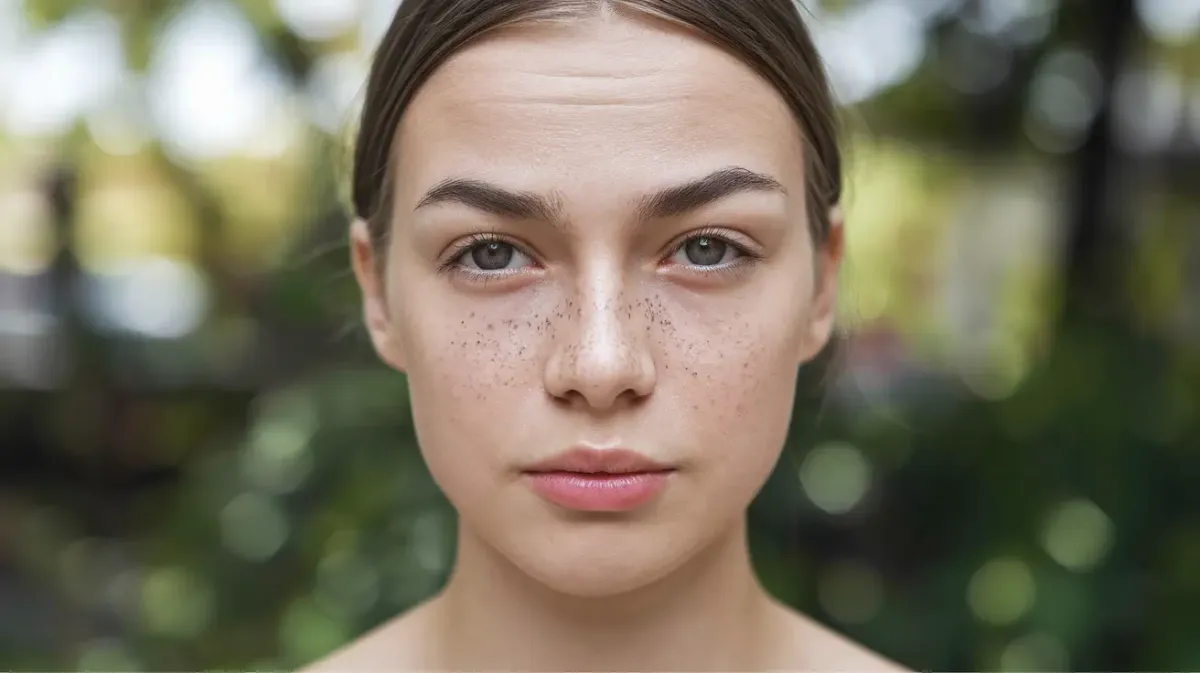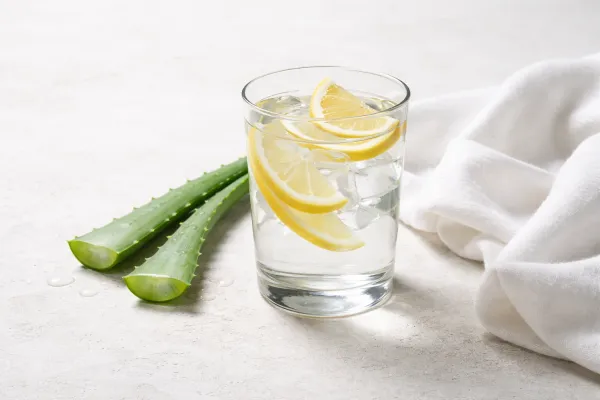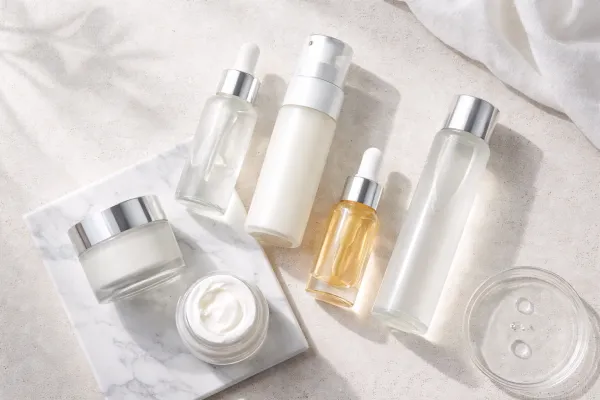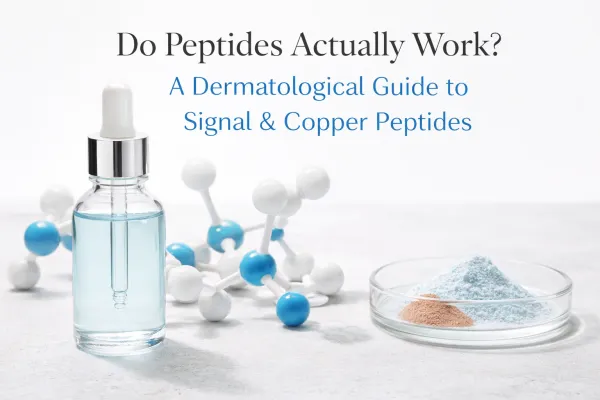Teenage Blackhead Treatments: Expert Tips and Advice
Learn effective teenage blackhead treatments with this comprehensive guide. Discover expert tips, skincare routines, and professional solutions for clear skin.

Ever stared at your reflection, frustrated by those tiny dark spots dotting your nose or chin?
You're not alone. Teenage blackheads are a common skin woe, a rite of passage for many, but that doesn't mean you have to live with them. Imagine a world where your skin feels smooth and clear, where you're not constantly worrying about those pesky blemishes.
It’s not a fantasy; it’s totally achievable with the right knowledge and approach. This guide is your roadmap to understanding and effectively treating blackheads, so you can confidently face the world with your best skin forward. Let's dive into the world of skincare and tackle those blackheads head-on.
Key Takeaways for Teenage Blackhead Treatments
- Salicylic acid is a key ingredient for exfoliating and unclogging pores.
- Retinoids help regulate skin cell turnover and prevent future blackheads.
- Professional treatments like extractions and chemical peels can offer faster results.
- A consistent at-home skincare routine, including gentle cleansing, moisturizing, and sunscreen, is crucial.
- Avoid squeezing blackheads to prevent scarring and inflammation.
- Patience is key; new skincare routines can take 6-12 weeks to show effects.
- For severe cases, consult a dermatologist for prescription treatments.
- Combining treatments and maintaining a consistent routine is the most effective approach.
- Understanding your skin type is crucial for choosing the right products.
- Sun protection is vital, especially when using retinoids, which increase sun sensitivity.
Understanding Teenage Blackheads
Before we jump into treatments, let's understand what exactly we're dealing with. Blackheads, also known as open comedones, are essentially clogged hair follicles. Unlike whiteheads, which are closed, blackheads are open to the air, causing the trapped sebum and dead skin cells to oxidize and turn black.
This oxidation process is what gives them their characteristic dark color, not dirt as many might believe. This is a crucial distinction because it means that simply scrubbing harder won't solve the problem. Understanding the root cause helps us target the issue more effectively.
For teenagers, hormonal fluctuations during puberty often lead to increased oil production, making them particularly susceptible to blackheads. It's a common battle, but one that can be won with the right strategy. I remember when I was a teenager, I used to think that the blackheads were just dirt and I would scrub my face so hard that it would get red and irritated. It's important to be gentle with your skin and use the right products.
- Blackheads are open comedones, caused by clogged hair follicles.
- The dark color is due to oxidation, not dirt.
- Hormonal changes during puberty increase oil production, leading to more blackheads.
- Genetics can also play a role in how prone you are to developing blackheads.
- Areas with more oil glands, like the nose, chin, and forehead, are most commonly affected.
It's important to remember that blackheads are a very common skin concern, especially during teenage years. Don't be discouraged if you're struggling with them; there are many effective treatments available.
The key is to find what works best for your skin and to be consistent with your routine. Skincare tips for teenage girls and skincare tips for teenage boys can be a great starting point for understanding the basics.
Topical Treatments for Teenage Blackheads

Topical treatments are often the first line of defense against blackheads. These are products you apply directly to your skin, and they can be incredibly effective when used consistently.
One of the most popular and effective ingredients is salicylic acid, a beta-hydroxy acid (BHA). Salicylic acid works by exfoliating the skin and penetrating deep into the pores to dissolve the sebum and dead skin cells that cause blackheads. It's available in various forms, such as toners, cleansers, and spot treatments.
I personally recommend starting with a lower concentration to see how your skin reacts and gradually increasing it if needed. Another powerhouse ingredient is retinoids, which are derivatives of vitamin A. Retinoids like adapalene, tretinoin, and tazarotene work by regulating cell turnover and preventing pore congestion.
These are often prescribed by a dermatologist, especially for more severe cases of acne. While retinoids are very effective, they can also cause some initial dryness and irritation, so it's important to introduce them slowly and use a good moisturizer.
Benzoyl peroxide is another common acne treatment, primarily used for inflammatory acne, but it can be combined with salicylic acid in cleansers for enhanced effectiveness.
The key here is to find the right combination of ingredients that work for your skin and to be patient, as it can take a few weeks to see noticeable results. Remember, consistency is key!
- Salicylic acid (BHA): Exfoliates and unclogs pores.
- Retinoids: Regulate cell turnover and prevent pore congestion.
- Benzoyl peroxide: Can be combined with salicylic acid for enhanced effectiveness.
When using these treatments, it's crucial to follow the instructions carefully and to avoid overusing them, as this can lead to irritation. It's also important to introduce new products one at a time, so you can identify any potential irritants.
For more information on the best products, check out our guide on best acne-fighting serums. Also, remember that sun protection is essential, especially when using retinoids, as they can increase your skin's sensitivity to the sun. Consider using one of the best sunscreens for teens to protect your skin.
Let's delve a bit deeper into how these topical treatments work. Salicylic acid, being a BHA, is oil-soluble, which allows it to penetrate into the pores and break down the sebum and dead skin cells that cause blackheads.
This makes it particularly effective for oily and acne-prone skin. It also has anti-inflammatory properties, which can help reduce redness and swelling associated with breakouts. Retinoids, on the other hand, work by increasing the rate at which your skin cells turn over.
This means that old skin cells are shed more quickly, and new, healthy cells are brought to the surface. This process helps to prevent the buildup of dead skin cells that can clog pores and lead to blackheads. Retinoids also help to reduce the production of sebum, which can further prevent breakouts. Benzoyl peroxide is an antibacterial agent that helps to kill the bacteria that can contribute to acne.
While it's primarily used for inflammatory acne, it can be a useful addition to your routine if you have a mix of blackheads and other types of breakouts. When using these treatments, it's important to start slowly and gradually increase the frequency and concentration as your skin tolerates it. This will help to minimize any potential irritation or dryness.
Professional Treatments for Stubborn Blackheads
Sometimes, topical treatments aren't enough to tackle stubborn blackheads. That's where professional treatments come in. These are procedures performed by dermatologists or medical aestheticians, and they can offer faster and more effective results.
One of the most common professional treatments is extraction. This involves using specialized tools, like comedo extractors, to carefully remove the entire blackhead. It's crucial to have this done by a professional to avoid scarring and infection. I've seen many people try to extract blackheads themselves at home, and it often leads to more harm than good.
Chemical peels are another effective option. These involve applying a chemical solution to the skin, which removes the top layers, opening pores and improving skin texture. A course of treatments is typically needed for mild to moderate acne. Laser therapy is also an option, particularly for severe acne. It works by reducing oil production and bacteria, and it can also help with scars and hyperpigmentation.
However, laser therapy is usually reserved for more severe cases and is something you should discuss with a dermatologist. These professional treatments can be a game-changer for those who haven't seen results with over-the-counter products. It's like having a professional clean your house versus doing it yourself; both can get the job done, but one is more thorough and efficient.
| Treatment | Description | Benefits |
|---|---|---|
| Extraction | Using specialized tools to remove blackheads | Safely removes blackheads, reduces recurrence risk |
| Chemical Peels | Removes top layers of skin, opening pores | Improves skin texture, reduces blackheads |
| Laser Therapy | Reduces oil production and bacteria | Helps with scars and hyperpigmentation, treats severe acne |
If you're considering professional treatments, it's important to consult with a dermatologist to determine the best course of action for your specific skin type and condition. They can assess your skin and recommend the most appropriate treatment plan.
For more information on laser treatments, you can explore our article on exploring fractional laser therapy. It's also worth considering chemical peels and what to expect from them.
Let's elaborate on these professional treatments. During an extraction, a trained professional uses sterile tools to gently remove the contents of the blackhead without damaging the surrounding skin. This is a much safer and more effective method than attempting to squeeze or pop blackheads at home.
Chemical peels, on the other hand, use a chemical solution to exfoliate the skin at a deeper level than topical treatments. This can help to unclog pores, improve skin texture, and reduce the appearance of blackheads. There are different types of chemical peels, ranging from mild to deep, and the type of peel that's right for you will depend on your skin type and the severity of your acne.
Laser therapy is a more advanced treatment that uses light energy to target specific skin concerns. It can help to reduce oil production, kill bacteria, and improve the appearance of scars and hyperpigmentation.
Laser therapy is often used for more severe cases of acne that haven't responded to other treatments. It's important to note that professional treatments can be more expensive than over-the-counter options, but they can also be more effective for stubborn or severe cases of blackheads. It's always best to consult with a dermatologist to determine the best course of action for your specific needs.
The Importance of At-Home Skincare for Blackhead Prevention
While professional treatments can offer quick results, maintaining a consistent at-home skincare routine is essential for preventing future blackheads. This routine doesn't need to be complicated; it just needs to be effective and consistent. The foundation of any good skincare routine is cleansing.
Washing your face twice daily, once in the morning and once at night, and after sweating, is crucial. Use a gentle, non-abrasive cleanser to avoid irritating your skin. Over-cleansing can actually strip your skin of its natural oils, leading to more oil production and potentially more blackheads. After cleansing, moisturizing is equally important, even if you have oily skin.
Use a lightweight, non-comedogenic moisturizer, which means it won't clog your pores. CeraVe PM Facial Moisturizing Lotion is a popular choice for many.
Sunscreen is another non-negotiable step, especially when using retinoids or other treatments that can make your skin more sensitive to the sun. Make sure to apply sunscreen every day, even on cloudy days. This is a habit you should start early and keep for life. I've seen so many people neglect sunscreen, and they end up paying the price later with sun damage and premature aging. It's like brushing your teeth; it's a daily habit that protects your skin for the long term.
- Cleansing: Wash your face twice daily with a gentle cleanser.
- Moisturizing: Use a lightweight, non-comedogenic moisturizer.
- Sunscreen: Apply daily, especially when using retinoids.
Remember, consistency is key. It's not about using the most expensive products; it's about finding the right products for your skin and using them regularly.
For more guidance on creating a routine, check out our beginners skincare routine for teens.
Also, explore our article on top cleansers for teenage skin to find the right cleanser for you.
And don't forget to protect your skin with one of the best sunscreens for acne-prone skin.
Let's break down the importance of each step in your at-home skincare routine. Cleansing is crucial for removing dirt, oil, and makeup that can clog pores and lead to blackheads. However, it's important to use a gentle cleanser that won't strip your skin of its natural oils. Look for cleansers that are labeled as non-comedogenic and fragrance-free.
Moisturizing is equally important, even if you have oily skin. When your skin is dry, it can actually produce more oil to compensate, which can lead to more breakouts. A lightweight, non-comedogenic moisturizer will help to keep your skin hydrated without clogging your pores. Sunscreen is a must-have, especially if you're using retinoids or other acne treatments that can make your skin more sensitive to the sun.
Sun exposure can also worsen hyperpigmentation and scarring, so it's important to protect your skin every day. Look for a broad-spectrum sunscreen with an SPF of 30 or higher. In addition to these core steps, you may also want to incorporate other products into your routine, such as toners, serums, and spot treatments. However, it's important to introduce new products slowly and to listen to your skin. If you experience any irritation or dryness, discontinue use and consult with a dermatologist.
The Dos and Don'ts of Teenage Blackhead Treatments
When it comes to treating blackheads, there are some crucial dos and don'ts that can make or break your progress. One of the biggest don'ts is squeezing or popping blackheads. While it might be tempting, this can lead to scarring, inflammation, and even infection. It's like trying to fix a leaky pipe with a hammer; you'll likely make the problem worse. Instead, focus on using the right treatments and allow them to work their magic. Another important do is to be patient.
New skincare regimens can take 6-12 weeks to show noticeable effects. It's not an overnight fix, so don't get discouraged if you don't see results immediately.
Consistency is key, and it's important to stick with your routine even when you don't see immediate changes. Also, be mindful of the products you're using. Avoid harsh scrubs and abrasive cleansers, as these can irritate your skin and worsen your blackheads.
Choose gentle, non-comedogenic products that are designed for acne-prone skin. I've seen so many people over-exfoliate their skin, thinking it will help, but it often leads to more problems. It's about finding the right balance and being gentle with your skin.
Finally, don't be afraid to seek professional help if you're struggling. A dermatologist can provide personalized advice and prescribe stronger treatments if needed.
| Dos | Don'ts |
|---|---|
| Use gentle, non-comedogenic products | Squeeze or pop blackheads |
| Be patient and consistent with your routine | Use harsh scrubs and abrasive cleansers |
| Seek professional help if needed | Expect overnight results |
It's also important to understand that everyone's skin is different, so what works for one person might not work for another. It's about experimenting and finding what works best for you.
For more information on what to avoid, check out our article on skincare products to avoid for darker skin. Also, remember to be gentle with your skin and to listen to what it's telling you.
Let's delve a little deeper into the dos and don'ts. Squeezing blackheads can push the contents deeper into the skin, leading to inflammation, scarring, and even infection. It's best to leave extractions to the professionals. When it comes to skincare products, look for those that are labeled as non-comedogenic, which means they won't clog your pores.
Avoid harsh scrubs and abrasive cleansers, as these can irritate your skin and worsen your blackheads. Instead, opt for gentle cleansers and exfoliants, such as salicylic acid or glycolic acid. It's also important to be patient and consistent with your routine. It can take several weeks to see noticeable results, so don't get discouraged if you don't see changes right away. Stick with your routine and be patient.
Finally, don't hesitate to seek professional help if you're struggling. A dermatologist can provide personalized advice and prescribe stronger treatments if needed. They can also help you address any underlying skin conditions that may be contributing to your blackheads.
When to Seek Professional Help for Teenage Blackheads
While many cases of teenage blackheads can be managed with over-the-counter treatments and a consistent skincare routine, there are times when seeking professional help is necessary. If you've tried various topical treatments for several weeks and haven't seen any improvement, it might be time to consult a dermatologist. They can assess your skin and recommend prescription treatments, such as oral antibiotics or isotretinoin, which are more powerful and can be very effective for severe acne.
Also, if your blackheads are accompanied by other forms of acne, such as cysts or nodules, it's important to see a dermatologist. These types of acne often require more aggressive treatment. Additionally, if you're experiencing scarring or hyperpigmentation as a result of your blackheads, a dermatologist can help you address these issues. They have access to treatments like chemical peels and laser therapy that can improve the appearance of scars and dark spots.
I've seen many teenagers struggle with severe acne, and it's important to remember that you don't have to go through it alone. A dermatologist can be a valuable partner in your journey to clear skin. It's like having a coach who can guide you and provide the best strategies for success.
- If over-the-counter treatments are not effective.
- If blackheads are accompanied by cysts or nodules.
- If you're experiencing scarring or hyperpigmentation.
- If your acne is causing emotional distress.
Don't hesitate to seek professional help if you're feeling overwhelmed or if your acne is impacting your self-esteem. A dermatologist can provide the support and treatment you need to achieve clear, healthy skin. For more information on acne treatment options, explore our article on teenage acne treatment options. Also, consider reading about how to treat dark spots on darker skin if you're dealing with hyperpigmentation.
Let's elaborate on the situations where professional help is recommended. If you've been using over-the-counter treatments for several weeks and haven't seen any improvement, it's a sign that your acne may require more aggressive treatment.
A dermatologist can assess your skin and recommend prescription medications, such as oral antibiotics, retinoids, or isotretinoin. These medications are more powerful than over-the-counter options and can be very effective for severe acne. If your blackheads are accompanied by other forms of acne, such as cysts or nodules, it's also important to see a dermatologist.
These types of acne are often more difficult to treat and may require a combination of treatments. Additionally, if you're experiencing scarring or hyperpigmentation as a result of your blackheads, a dermatologist can help you address these issues. They have access to treatments like chemical peels, laser therapy, and microneedling that can improve the appearance of scars and dark spots.
Finally, if your acne is causing emotional distress or impacting your self-esteem, it's important to seek professional help. A dermatologist can provide the support and treatment you need to achieve clear, healthy skin and improve your overall well-being.
The Role of Diet and Lifestyle in Managing Blackheads
While skincare is crucial for treating blackheads, it's also important to consider the role of diet and lifestyle. While there's no magic food that will instantly clear your skin, a balanced diet rich in fruits, vegetables, and whole grains can support overall skin health. Some studies suggest that high-glycemic foods, such as sugary drinks and processed snacks, can contribute to inflammation and acne. It's not about depriving yourself; it's about making healthier choices most of the time. Staying hydrated is also essential for healthy skin.
Drinking plenty of water helps to flush out toxins and keeps your skin moisturized. I always tell people that water is the best and cheapest skincare product you can use. Stress can also play a significant role in acne breakouts. When you're stressed, your body produces more cortisol, a hormone that can increase oil production. Finding healthy ways to manage stress, such as exercise, meditation, or spending time in nature, can help to reduce breakouts.
Getting enough sleep is also crucial for skin health. During sleep, your body repairs and regenerates cells, including skin cells. Aim for 7-9 hours of sleep per night to support healthy skin. It's like having a well-oiled machine; if you don't take care of it, it won't function properly.
- Eat a balanced diet rich in fruits, vegetables, and whole grains.
- Stay hydrated by drinking plenty of water.
- Manage stress through exercise, meditation, or other relaxation techniques.
- Get 7-9 hours of sleep per night.
By making these lifestyle changes, you can support your skincare efforts and improve your overall skin health. Remember, it's about taking a holistic approach to managing blackheads.
For more information on the connection between diet and skin health, check out our article on role of diet in melanin-rich skin health. Also, explore our article on is drinking water the key to clear skin.
Let's delve deeper into the connection between diet, lifestyle, and blackheads. While there's no definitive evidence that specific foods cause acne, some studies suggest that high-glycemic foods can contribute to inflammation, which can worsen breakouts. These foods include sugary drinks, processed snacks, and refined carbohydrates.
It's best to focus on a balanced diet that's rich in fruits, vegetables, whole grains, and lean protein. Staying hydrated is also crucial for healthy skin. Water helps to flush out toxins and keeps your skin moisturized. Aim to drink at least eight glasses of water per day.
Stress can also play a significant role in acne breakouts. When you're stressed, your body produces more cortisol, a hormone that can increase oil production. Finding healthy ways to manage stress, such as exercise, meditation, or spending time in nature, can help to reduce breakouts. Getting enough sleep is also crucial for skin health. During sleep, your body repairs and regenerates cells, including skin cells.
Aim for 7-9 hours of sleep per night to support healthy skin. In addition to these lifestyle factors, it's also important to avoid picking or squeezing your skin, as this can lead to inflammation, scarring, and infection.
Long-Term Strategies for Clear Skin
Treating blackheads is not just about finding a quick fix; it's about developing long-term strategies for maintaining clear skin. This involves building a consistent skincare routine that you can stick with, even when you're busy or tired. It's about making skincare a part of your daily life, like brushing your teeth or showering. It's also important to be patient and persistent. It takes time to see results, and there will be times when your skin might not look perfect. But if you stick with your routine and make healthy lifestyle choices, you'll eventually see improvement.
Another important aspect of long-term skincare is to adapt your routine as your skin changes. As you get older, your skin's needs will change, so you might need to adjust the products you're using. It's about being flexible and responsive to your skin's needs. I've seen many people stick with the same routine for years, even when it's no longer working for them. It's important to be open to change and to try new things.
Finally, remember that skincare is not just about treating blemishes; it's about taking care of yourself and feeling good about your skin. It's about building confidence and self-esteem. It's like planting a tree; it takes time and care to grow, but the results are worth it.
- Build a consistent skincare routine.
- Be patient and persistent.
- Adapt your routine as your skin changes.
- Make healthy lifestyle choices.
- Focus on overall skin health, not just treating blemishes.
By following these long-term strategies, you can maintain clear, healthy skin for years to come. Remember, it's a journey, not a destination.
For more information on building a long-term skincare routine, check out our article on the ultimate AM and PM skincare routine. Also, explore our article on how to do skincare for beginners if you're just starting out.
Let's delve deeper into these long-term strategies. Building a consistent skincare routine is the foundation for maintaining clear skin. This routine should include cleansing, moisturizing, and sunscreen, as well as any other treatments that are recommended by your dermatologist. It's important to be patient and persistent, as it can take several weeks to see noticeable results.
Don't get discouraged if you don't see changes right away. Stick with your routine and be patient. As you get older, your skin's needs will change, so you may need to adjust the products you're using. For example, you may need to switch to a more hydrating moisturizer as your skin becomes drier. It's important to be flexible and responsive to your skin's needs. Making healthy lifestyle choices, such as eating a balanced diet, staying hydrated, managing stress, and getting enough sleep, can also support your skincare efforts.
Finally, remember that skincare is not just about treating blemishes; it's about taking care of yourself and feeling good about your skin. It's about building confidence and self-esteem. By following these long-term strategies, you can maintain clear, healthy skin for years to come.
Conclusion
Dealing with teenage blackheads can be frustrating, but it's not a battle you have to fight alone. With the right knowledge, treatments, and a consistent routine, you can achieve clear, healthy skin.
Remember, it's about understanding your skin, finding the right products, and being patient. Don't be afraid to seek professional help if you're struggling, and always remember to be kind to yourself.
Your skin is unique, and what works for one person might not work for another. It's about finding what works best for you and sticking with it. I've seen so many people transform their skin, and it's always a rewarding experience. It's like watching a flower bloom; it takes time and care, but the results are beautiful.
So, take the first step towards clear skin today, and remember that you're not alone on this journey. You've got this!
Frequently Asked Questions
What causes blackheads in teenagers?
Blackheads are caused by clogged hair follicles, where sebum and dead skin cells get trapped. Hormonal changes during puberty often lead to increased oil production, making teenagers more prone to blackheads. The increase in androgen hormones during puberty stimulates the sebaceous glands to produce more sebum, leading to oily skin. Androgens stimulate sebaceous glands, so men typically have higher sebum output and larger pores—factors that can drive blackheads and acne. This is why teenagers often struggle with oiliness and breakouts during these years.
Can I pop my blackheads?
No, you should avoid squeezing or popping blackheads, as this can lead to scarring, inflammation, and infection. It's best to use proper treatments to remove them safely. Some spot treatments, especially those containing benzoyl peroxide or retinoids, can cause dryness. It's important to use a moisturizer and sunscreen to prevent irritation. Also, be careful not to overdo it. Introducing too many new products at once can overwhelm your skin and cause further irritation. If you're not seeing improvements after a few months of consistent skincare, or if you have severe acne, it's best to consult with a dermatologist.
How long does it take for skincare treatments to work?
New skincare regimens can take 6-12 weeks to show noticeable effects. Consistency and patience are key. It can take several weeks to months to see significant improvement. Consistency is crucial, and patience is key. Changes vary for everyone. Your skin cells renew constantly. You might see small improvements in a few weeks. Think less redness or more hydration. Full, noticeable benefits often take 1-3 months. Stick with it. Consistency is the real secret. Your skin needs time to respond. Like any wellness journey, patience and persistence are key to achieving lasting results. Don't expect immediate results.
What are the best ingredients for treating blackheads?
Salicylic acid, retinoids, and benzoyl peroxide are effective ingredients for treating blackheads. Salicylic acid exfoliates and unclogs pores, while retinoids regulate cell turnover and prevent pore congestion. The best spot treatments for teenage acne often contain salicylic acid, benzoyl peroxide, sulfur, or retinoids. The right choice depends on the type of acne you're dealing with. Look for gentle ingredients like lactic acid, salicylic acid, ceramides, hyaluronic acid, and niacinamide. Avoid harsh ingredients like alcohol, fragrance, and sulfates. If you have acne-prone skin, look for cleansers and moisturizers that say "oil free" or "non-comedogenic," as these won't clog your pores.
When should I see a dermatologist for my blackheads?
You should see a dermatologist if over-the-counter treatments are not effective, if your blackheads are accompanied by cysts or nodules, or if you're experiencing scarring or hyperpigmentation. If your acne is severe, persistent, or not improving with over-the-counter treatments, it's time to consult a dermatologist for personalized recommendations. New spots or moles that itch, bleed, or change color are often early warning signs of skin cancer. If you notice any suspicious spots, make an appointment to see a dermatologist. Dermatologists are skin cancer experts. Your dermatologist knows how to identify skin cancer in all skin tones. That's important since skin cancer can appear differently in darker skin tones than in lighter skin tones. They can provide personalized advice and recommend advanced treatments if needed.
Further resources:




